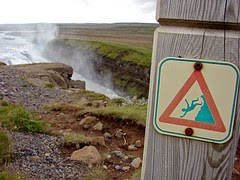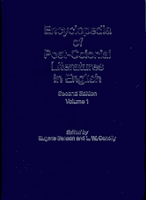Do You Know What You Don’t Know?
“It is worse still to
be ignorant of your own ignorance.” – Saint Jerome
Last year I was given a daily desk calendar
(you know, those calendars you forget to tear off daily and so you end up
ripping out a chunk every few weeks) that featured humorous answers given by
students on tests. Mixed in with the often hilarious exam answers were quotes
related to education. The entry from Wednesday, June 26 has been taped to my
computer monitor in my office ever since. “It is worse still to be ignorant of
your own ignorance.” This is a quote is taken from Saint Jerome’s (who is also
the Patron
Saint of Libraries) Letter
53 is a daily reminder and warning that yes, even as a librarian, I am constantly
in danger of being ignorant of my own ignorance.
I see this play out in real time often when I visit classes
to instruct students in the ways of becoming more information literate
individuals. Recently, I listened as a student told her classmates that this
class (meaning the one I was about to teach) was “really going to be a waste of
time because I already have all of my stuff together.” Some might fear for my
ego here, but my real concern is that often our students aren’t aware of their
own ignorance when it comes to doing research. In fact, I see it as one of my
main objectives anytime I talk to students whether I’m in a classroom or at the
reference desk. Students – information seekers – often don’t know what they
don’t know. As reference librarians we spend a great deal effort honing our
skills in the interview process so that we can combat this problem. One of the
hardest things about getting someone to the information that they need is
actually finding out what it is that they think
they need. You’d be surprised how often their actual question ends up being
totally different than the one they started out asking.
One of the first steps in becoming information literate is
to recognize a gap in your knowledge – or, to know that you don’t know. One way
I’ve started being intentional about acknowledging the information gap that a
student might have is to have them go find one piece of background information
on their topic. It is so very common for a student who is new to research to
think of it writing about what they already *think* they know and then just
finding sources that support their argument.
Like most of us, students approach searching for information
using familiar methods. They “Google.” They use Wikipedia. They sometimes even
ask their friends. It feels like it should be easy in today’s information world
to find out the answers to your questions. In many ways it is, but in more ways
the influx of information makes it more difficult to narrow down where you
should look for the truth. I read a statement recently that proposed
that “a weekday edition of the New York Times contains more information than
the average person was likely to come across in a lifetime in 17th
century England.” (Of course, I would also agree with the criticism
of this idea that really this would only take into account written information
as it would be impossible to quantify conversations that went on about the
weather and “how about that cricket match?”)
In light of this information deluge, I’m able to take on the question about the
future of libraries and librarians in the age of the internet by saying that
now, possibly more than ever, having someone help you to navigate the
information landscape is vital.


Comments
"There are known knowns; there are things we know we know. We also know there are known unknowns; that is to say, we know there are some things we do not know. But there are also unknown unknowns--the ones we don't know we don't know." - Donald Rumsfeld